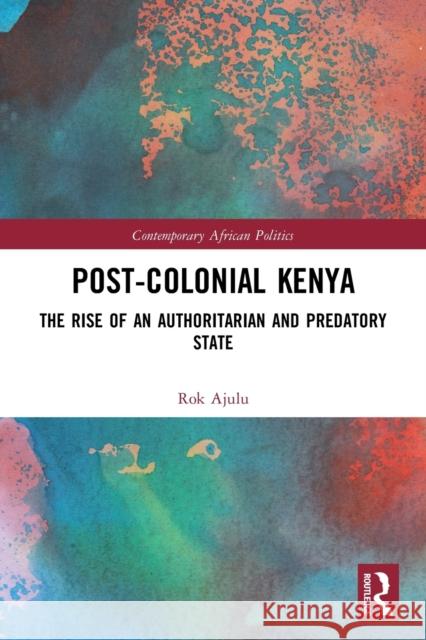Post-Colonial Kenya: The Rise of an Authoritarian and Predatory State » książka
Post-Colonial Kenya: The Rise of an Authoritarian and Predatory State
ISBN-13: 9781032030586 / Angielski
Post-Colonial Kenya: The Rise of an Authoritarian and Predatory State
ISBN-13: 9781032030586 / Angielski
(netto: 213,28 VAT: 5%)
Najniższa cena z 30 dni: 196,40
ok. 16-18 dni roboczych.
Darmowa dostawa!
This engaging reassessment of postcolonial Kenya argues that the country’s political turmoil over the last fifteen years is a continuation of repeating patterns of political contestation and conflict across Kenya’s history.
This engaging reassessment of postcolonial Kenya argues that the country’s political turmoil over the last fifteen years is a continuation of repeating patterns of political contestation and conflict across Kenya’s history.
When Kibaki stole the 2007 presidential election, leading to a spiral of violence that left over 1,000 people dead in the space of a month, many analysts wondered how this could happen in a country that had previously been considered an oasis of peace in an otherwise conflict prone region. Combining political economy with political sociology, in this book Rok Ajulu demonstrates that in fact authoritarianism and the predatory deployment of the state has been the predominant feature of Kenya’s post-colonial period. Focusing on how power has been mediated in the country politically and the characters of the elites in charge, the analysis shows the dominance of extra-economic political coercion in economic activity. In a context in which economic activity remains predominantly political, continued control of state-power is so crucial for the new ruling class that it must be retained at all costs.
Rok Ajulu’s masterful final book is a powerful and wide-ranging contribution to studies on post-colonial Kenya and will be an important resource for researchers from across political science, economics, history, sociology and African Studies.











